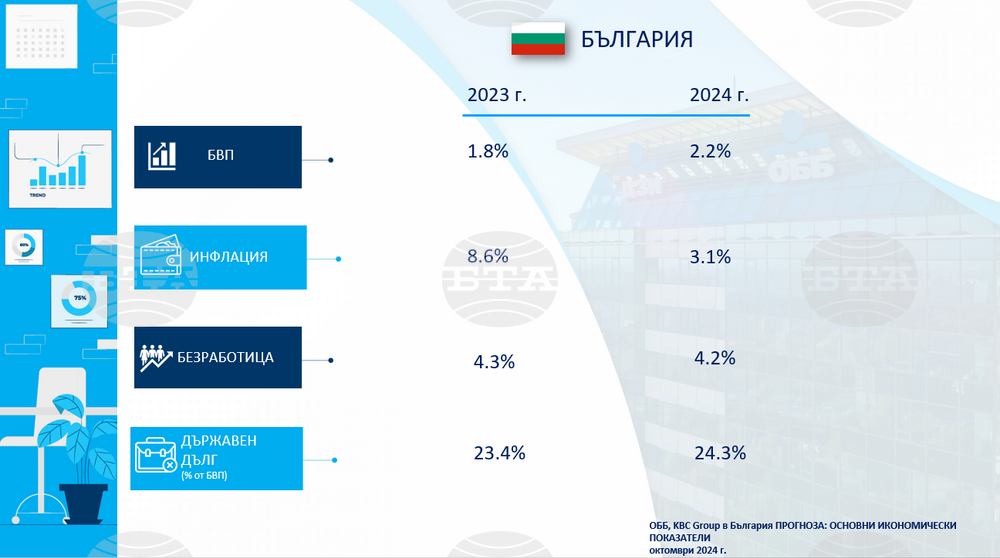site.btaUPDATED Bulgaria Likely to Meet Inflation Criterion for Eurozone in Next 3-6 Months, United Bulgarian Bank Analysis Says


Bulgaria is likely to meet the inflation criterion for entering the eurozone in the next 3 to 6 months, according to an analysis by the United Bulgarian Bank (UBB) based on latest data from the National Statistical Institute (NSI) and Eurostat.
The analysis summarizes that in August 2024, harmonized inflation rate dropped once again to 2.4%, compared to August 2023. Core inflation (excluding food and fuels) stood at 3%, while inflation measured by CPI saw a subsequent drop to 2.1%.
Emil Kalchev, chief economist at UBB, said the twelve-month average inflation, which is one criterion for entering the eurozone, has slowed to 3.3% in August 2024. The benchmark, which is the average inflation rate in the three eurozone countries with the lowest inflation plus 1.5 percentage points, has also fallen to 2.7%, outlining the possibility of convergence in the next three to six months, he explained.
The bank's analysts report that in the first half of 2024, the real growth of Bulgarian economy stood at 2%, compared to the same period in 2023, according to NSI data.
Growth was mainly driven by services and industry. The services sector, despite not being the fastest-growing niche in the first half of 2024 (1.7%), year-on-year, gave a boost to Bulgaria’s GDP due to its huge relative share of 61.7%," Kalchev said. "The industry reported a faster 2.2% increase in output, but its impact was weaker as its GDP share was three times smaller – 18.9%. Agriculture grew by 0.9% with a GDP share of 4.4%, while the smallest industry, construction (2.6 per cent of GDP), increased its output by 1.6%," Kalchev said.
The analysis also shows that the outlook for the economies in the euro area has slightly improved, but the prospects for the German economy remains relatively pessimistic. The UBB downgrades slightly its forecast for real GDP growth in Bulgaria because of the recession in Germany, which is Bulgaria's largest trading partner, as well as because of the deepening political crisis in Bulgaria. The analysis shows that the harmonized unemployment rate remained stable at 4% between May and July 2024. Against this backdrop, having slowing inflation rate, average monthly wages have again accelerated upwards, reaching record highs of 19.4% and 18.1% in June compared to the same months of 2023, the report further says.
/DD/
news.modal.header
news.modal.text